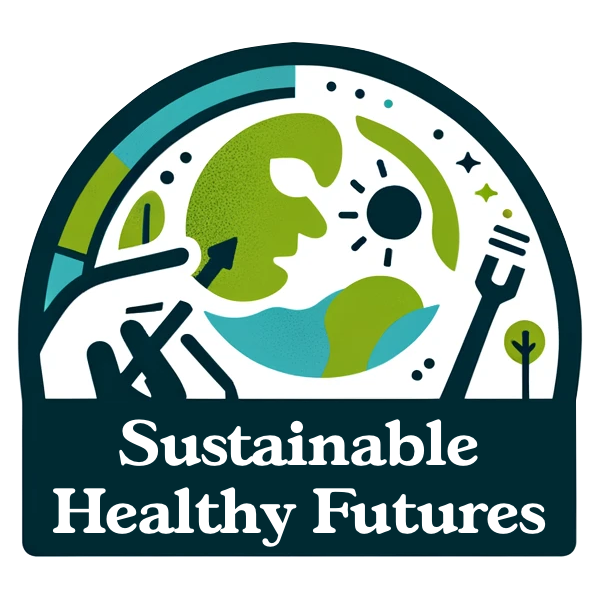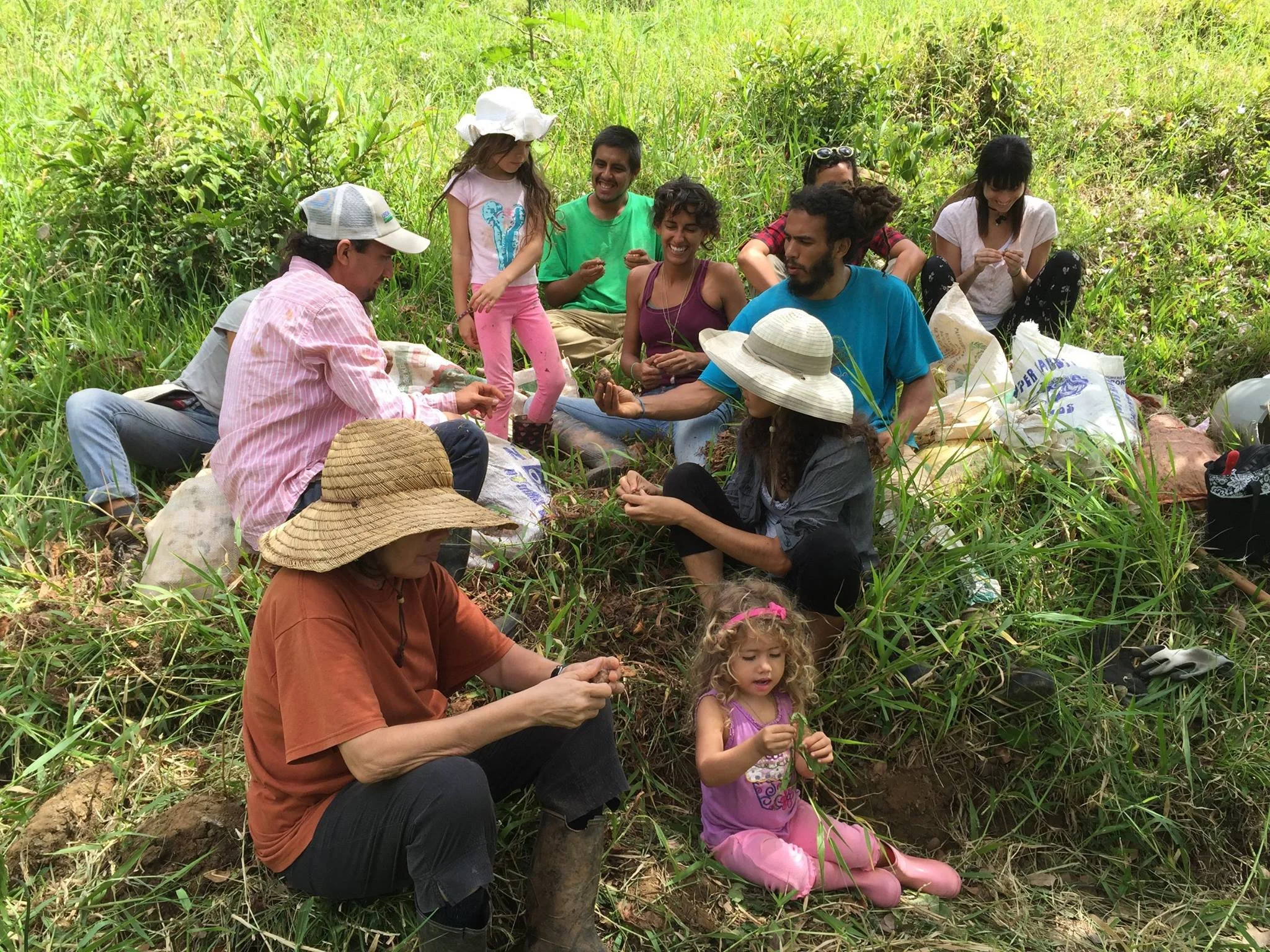
La Organización Boricuá de Agricultura Ecológica de Puerto Rico
Regenerative agriculture across the archipeligo
The Context of the Archipelago
Puerto Rico’s past and present are inextricably intertwined with colonialism. A Spanish colony from soon after Christopher Columbus's second voyage in 1493 until the U.S. invasion in 1898, at which point the Spanish were supplanted by the United States. Today, Puerto Rico is a legal territory of the United States, similar to American Samoa, a colonial context that precludes residents from voting in U.S. presidential elections.
Fighting for food security across Puerto Rico
Geographically located in a “blessed” yet vulnerable area in the global south, Puerto Rico is highly susceptible to tropical storms, hurricanes, rising sea levels, warming temperatures in both air and ocean and other environmental and climate factors. It faces increasingly unpredictable patterns of drought, as rain and draught patterns shift and vary, and dry spells occur when least anticipated and last for longer durations. Furthermore, decisions made by the global north directly and excessively impact the region.
A myriad of factors have led Puerto Rico, which once produced over 70% of its food, to a place that now receives approximately 85% of its food from external sources. According to a survey conducted by the George Washington University Milken Institute School of Public Health and the Instituto Nueva Escuela that examined food insecurity in Puerto Rico during COVID-19, 40 percent of families experienced food insecurity during the pandemic. Due to this, organizations, including La Organización Boricuá de Agricultura Ecológica de Puerto Rico, have been working on ways to establish food sovereignty.

Organización Boricuá was conceived as a vehicle of transformation from the Puerto Rico currently lived in, to the one they hope to live in in the future. It strategically plans for what is envisioned ahead — a free, healthy, happy, and sustainable Puerto Rico. With a diverse and intergenerational membership, Organización Boricua has remained steadfast since its inception.
La Organización Boricuá de Agricultura Ecológica de Puerto Rico (La Organización Boricuá) is a national base-building, grassroots organization present across the archipelago. Established in 1989, it is composed of farmers, farmworkers, agrarian organizers, agroecology promoters, campesinos (Spanish for "peasant"), and food sovereignty and climate justice activists. Members are present at the national level, as well as spread out across the varying regions, including urban, rural, and coastal landscapes. Broadly speaking, it works to promote and utilize agroecology and climate justice as vehicles for transformation, with a key objective of achieving food sovereignty and social justice in Puerto Rico.
Organización Boricuá was conceived as a vehicle of transformation from the Puerto Rico currently lived in, to the one they hope to live in in the future. It strategically plans for what is envisioned ahead — a free, healthy, happy, and sustainable Puerto Rico. With a diverse and intergenerational membership, Organización Boricua has remained steadfast since its inception. Working at the intersections of environmental justice, climate justice, agroecology, and food sovereignty — the focus expands beyond that. A significant effort is dedicated to environmental and climate justice work and the interconnectedness of those spheres. Additionally, agricultural work and access to land are crucial material conditions for transformation. The organizational focus is not only on making statements or engaging in direct action and public policy work but also on collective care for the land and building a supportive community all across Puerto Rico.
Organizational Structure
Organización Boricuá is spread out across Puerto Rico, with a majority of its membership in rural areas along the Cordillera Central, a large, centrally-located mountain range. These areas are where the communities that resisted migration live, whether that was from rural areas to the cities or from Puerto Rico to the U.S. and other parts of the world. These individuals have a deep connection to their land, a place where their parents and grandparents were born and where they continue to live. Accessibility also plays a role, as mountainous areas are more economically accessible than those along the coasts.
The diversity of organizational membership is multi-faceted. It is intergenerational, with the founding members having a clear vision of the importance of engaging and impacting youth. There are members who have educated themselves on the methodologies of ecological farming, eco-agriculture, and organic agriculture and who share their knowledge within the community. Then there are those who were originally organizers and activists in other sectors, such as those against mining or for Puerto Rican independence, who then became involved. This diversity also extends to age, from the elders to younger individuals and even children who have been born into the cause.
Diversity in terms of identity and gender is also embraced, highlighting indigenous practices and languages across the organization. There is additionally a significant representation of women in leadership positions, which is being done with discreet intentionality. Other forms of identity are embraced, and they actively promote Afro-Caribbean identity in climate justice and agriculture, minimizing the traditions inherited from colonizers. All of this inclusionary activity leads to organizational decisions being made through assembly formats, where hundreds from across the archipelago participate in discussions, proposals, and decision-making.
Funding
Organización Boricuá has predominantly operated as a grassroots organization relying on internal resources with minimal amounts of external support. Base-building has been fundamental to the ethos of the organization, fostering a sense of community and belonging. However, there is a growing recognition of a need to seek out external resources in a bid to increase sustainability among the membership. Traditionally, members have had to hold other jobs in addition to their involvement with the organization, leading to high levels of burnout. For the additional support already brought in, beyond providing compensation to those who dedicate their time to the organization, it has taken the form of strengthening and expanding programming in areas such as education, accompaniment, expanded tools, and building and rebuilding homes and farming infrastructure.
The approach to collaborating with external organizations has been highly analytical, but this focus has shifted towards looking to work with organizations with similarly aligned values and principles. At present, they haven't ventured into these types of partnerships, but they are open to such collaborations, especially for specific projects. These projects often involve more focused, short-term efforts with particular organizations, such as universities, to test certain curricula or initiatives. Additionally, they are not actively pursuing extensive philanthropic collaborations, though the opportunity to do so is always there.
In rare cases, support is sought for specific needs when it aligns with their organizational objectives, and they have the capacity to absorb the responsibilities that come with it. However, the standard approach focuses more on collaboration, where they work with partners, such as alliances and other organizations in Puerto Rico, who may own the funding and utilize it for joint projects. In these collaborations, full administrative capacity is absorbed by the partner organization, which allows them to focus on the accompanying initiative.

